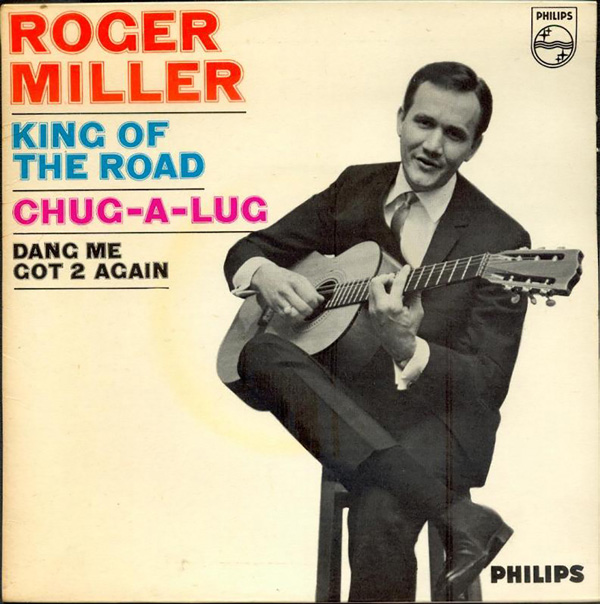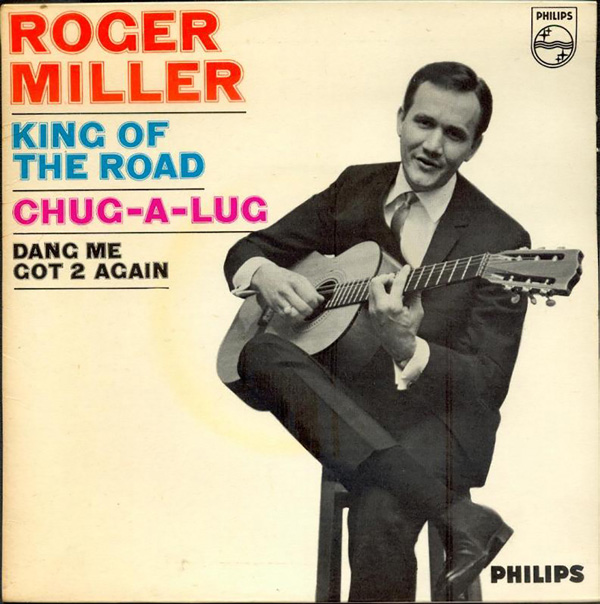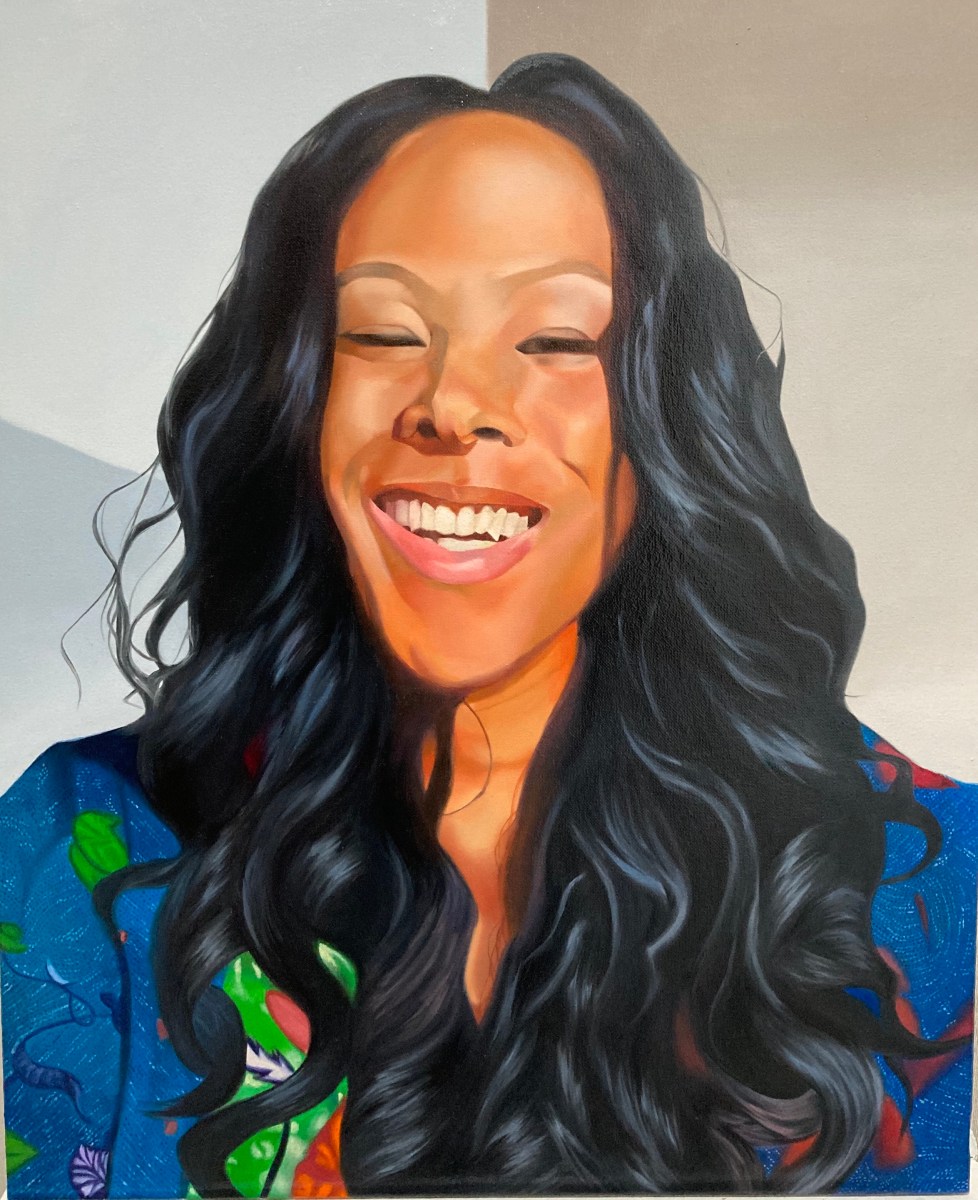
BY JIM MELLOAN | Summer of ‘65. My family makes its annual pilgrimage from Jersey to Indiana to visit the grandparents, aunts, uncles and cousins. I’ll turn 10 in a couple months; my sisters are turning eight and four. The default place for the overnight stay and meals on the way is Howard Johnson’s. They had those little jukeboxes you could play at each booth. The soundtrack for that trip, requested at every stop by eight-year-old sister Missy (who now goes by Molly) is Roger Miller’s “King of the Road.”
Fifty years ago this week the song was climbing the charts. It entered the top ten of the Billboard Hot 100 in late February and peaked at No. 4 the week of March 20. It resonates today as a uniquely American synthesis of styles, standing proud in the face of the British Invasion. Miller was genuine country, born dirt-poor in Oklahoma and sent off to live with an uncle and aunt because his mom couldn’t afford to keep him. But he was too quirky, funny and happy-go-lucky to fit into the standard Country genre, with its songs of pining for lost loves. Miller had some success as a songwriter in the ’50s and ’60s, and had just enjoyed pop success as a performing artist with “Dang Me” and “Chug-a-Lug,” which hit No. 7 and No. 9 respectively in 1964.
Both songs, unusual for pop hits of the day, or pretty much any era, were celebrations of dissolution, and “King of the Road” continued in this vein. But musically, with its jazzy opening featuring just a stand-up bass and finger snaps, it owes a lot to Peggy Lee’s signature “Fever,” from 1958. And musically and lyrically, the tradition could be felt almost 30 years later with Beck’s breakout hit “Loser,” albeit splintered into a thousand avant-garde pieces.
The strange hybrid character of the song is perhaps best captured in The Proclaimers’ 1990 video for their cover, featuring identical twins Charlie and Craig Reid looking spiffy in Country & Western suits and ties, delivering the song with old-style microphones and swingy finger-snaps, thick Scottish burrs intact, amid desolate old roads and rail yards.
I think Missy and I especially liked the lyric “I ain’t got no cigarettes.” It was an enticingly adult complaint, rendered with a directness and crudity hitherto unknown in pop. It just felt modern all around, a heady celebration of freedom with none of the trappings of any kind of success, in that sense a turning point from the aspirational themes of the early ’60s to the live-and-let-live ethos of the counterculture later in the decade. Today, it has me wondering what would it would be like to crave old stogies, and to actually find and smoke them. Apparently, a lot of guys did.
Tons of artists have covered the song. It was a natural for Dean Martin. There’s a YouTube video of him hamming it up while performing it at a Rat Pack benefit in St. Louis for Father Dismas’s Half-Way House, appropriately enough, for ex-cons, in June of 1965. He put his version out on vinyl on the album “(Remember Me) I’m the One Who Loves You,” released in September of 1965.
The Ray Conniff Singers, all 25 of them, plus a huge orchestra, took their schmaltzy whack at it in 1966. That cut ends with a satisfyingly dissonant vocal chord meant to sound like a train horn.
Rufus Wainwright, son of Loudon Wainwright III and Kate McGarrigle, teamed with Teddy Thompson, son of Richard and Linda Thompson, to make a sweet duet of the song in 2005, used in the movie “Brokeback Mountain.”
And the Tucson-based band Giant Sand has a great version from their 2002 album “Cover Magazine,” featuring Howe Gelb’s dry-as-a-tumbleweed bass vocals in a honky-tonk arrangement.
Another memory: Inc. magazine president-at-the-time Bob LaPointe doing the song with company band the Mansuetones, of which I was a member, at a company holiday party in the late 2000s. Obviously the song’s down-and-out-but-not-beat theme had a resonance for him, as it probably did for much of Inc.’s entrepreneurial target audience.
Louis CK once did a bit where he talked about being alone in an elevator, and for that short span of time he could strut about and declare himself King of the Elevator. As with King of the Road, no matter what our station, we can all declare ourselves King or Queen of something. It’s a powerful idea.
— Jim Melloan is a writer, actor, musician and editor. He’ll be doing occasional columns on pop music from 50 years ago. You can hear a lot of playlists he’s created on Spotify.


















